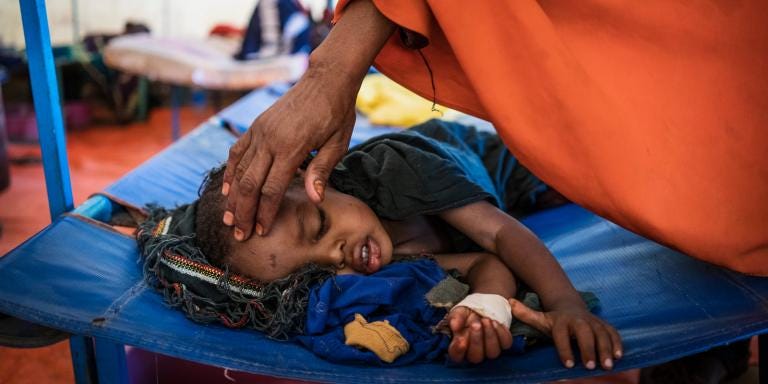Dying of Thirst: The Global Water Crisis (#2 by Gospel for Asia)
WILLS POINT, TX — Gospel for Asia (GFA) Special Report Part 2– Discussing the global water crisis and the quest for access to clean water.
 |
| A mother cares for her son who is being treated for cholera at a UNICEF-supported cholera treatment center in Baidoa, Somalia Photo by Mackenzie Knowles-Coursin, UNICEF |
Waterborne Diseases Caused by the Global Water Crisis
Even under normal conditions, people in many regions are exposed to life-threatening diseases from their water, including typhoid, polio and hepatitis A. Among the most common waterborne diseases is diarrhea, which can be caused by any of several pathogens. It kills about 1.5 million children every year, more than 80 percent of them in Africa and South Asia. World Health Organization (WHO) estimates that 88 percent of those deaths are caused by unsafe water, inadequate sanitation and poor hygiene.[1] Diarrheal diseases kill by depleting the body’s fluids, often very rapidly.
Children are most vulnerable because their metabolisms use more water than adults’, and their body weight consists of more water proportionally than an adult’s. Their kidneys are also less able to conserve water.[2]
Diseases that are so deadly can be prevented with changes that are simple.
Children with malnutrition and weakened immune systems are especially susceptible to the worst effects of diarrhea. This explains why diarrheal disease is one of the primary killers in poorer countries but not in the developed world. Some diarrheal diseases target adults and older children. One of the most familiar and deadly of these is cholera, which afflicts between 1.4 million and 4 million people each year, killing thousands.[3]
In some documented cases, improving the quality of water at the source, combined with treatment of household water and safe water-storage systems, has reduced the incidence of diarrhea by 47 percent. And studies show that simply handwashing with soap can reduce the incidence by 40 percent.[4]These figures underscore a tragic truth: Diseases that are so deadly can be prevented with changes that are simple.
To know more about this article, click here.
Comments
Post a Comment